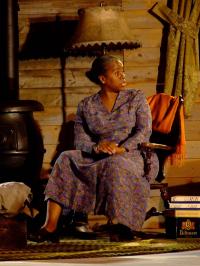Canadian Theatre Encyclopedia
Ground Zero Productions
Socially-engaged theatre and video company, founded in Toronto 1983 by Don Bouzek. The name derives from his experiences as a youth in Ottawa during the Cold War, when a nuclear holocaust seemed inevitable.
GZP’s mission has been to fashion arts-based projects that educate people about social injustices and motivate them to become social activists. Over time its focus has become the struggles of working people in unions and community organizations. However, as theatre historian Alan Filewod has demonstrated, “Ground Zero has been able to avoid becoming ideologically entrenched or involved in perpetuating essentialist communities and identities. Instead, Ground Zero predominantly tells and performs carefully historicized ‘true’ stories to counter dominant fictions, while leaving space to scrutinize and subvert the power-produced dynamics of performance” (Ingred Mundel, Theatre Research in Canada 24.1-2 [2003]).
Productions include: Where’s the Care (1990), which explores the concerns of Ontario health care workers; Fair is Fair (1992-93), which focuses on employment equity; The Psyche Project (1998), which challenges traditional medicine for cancer patients: Hijos del Maiz /People of the Corn (1992-95), which tells the story of three Salvadoran refugees who encounter the systemic racism of Canada’s immigration policy, using as a departure point the origins of a Canadian cup of coffee in a colonized and exploited country.

More recently, Ground Zero Productions has initiated works that reflect the social reality of culturally diverse communities in Alberta. With the support of The Black Pioneer Descendants, Pat Darbasie created Ribbon, a history of Black pioneers in the Athabasca region of Alberta in the early twentieth century through the struggle of a single mother to establish a home near Athabasca. Darbasie performed the roles of the ghost of the pioneer mother, and her great-granddaughter Paula, who comes to her ancestral home to clean out the garbage, and discovers a wealth of memories and history. It premiered at the University of Alberta Studio Theatre in 2005, and toured to the Nancy Appleby Theatre, Athabasca, and Amber Valley community hall in 2009.
In March 2011, Ground Zero Productions premiered Pat Darbasie's West Indian Diary at the Stanley A. Milner Library in Edmonton (directed by Philip Akin, then Artistic Director of Toronto's Obsidian Theatre Company). It is based on the research of University of Alberta education professor, Jennifer Kelly, and Darbasie's own family's relocation from Trinidad, and enacts the stories of Caribbean immigrants to the Edmonton area in the 1960s and 70s, and the ways in which they established a community through a common love of cricket.
In 1998, Ground Zero Productions relocated to Edmonton and began a collaboration with Banner Theatre, Birmingham, England, to develop a Video Ballet form (based on the radio Ballads created by Ewan MacColl, Peggy Seeger, and Charles Parker), which mixes video documentary with live musical performance.
With singer/songwriter, Maria Dunn, GZP has created four Video Ballads: Troublemakers tells the story of working people in Alberta from contact to the present day. It has toured Canada, and presented in Winnipeg as part of a national conference to mark the centenary of the Winnipeg General Strike
GWG: Piece by Piece (2007) tells the stories of struggle and cultural survival of the immigrant women workers at Edmonton's GWG factory, which operated from 1911 until 2004. Based on the research of historian Catherine C. Cole, and expressed through the words and music Maria Dunn, it uses filmed interviews with the women who had worked there.
The Packlington Video Ballad explores the community of northeast Edmonton in the twentieth century when it was dominated by half a dozen meatpacking plants. Maria Dunn's songs explore the social life of a diverse population and the hard-scrabble working life in the plants.
On the River is a 60-minute live performance of music and video that tells the story of the Cree, Dene and Métis peoples’ community of Fort McKay, through the lens of the life of former chief, Dorothy McDonald-Hyde, with songs written and performed by Debbie Houle, Sherryl Sewepagaham, Sarah Pocklington, and Maria Dunn, and video by Don Bouzek. For a sample video, see: https.//www.mariadunn.com/projects/on-the-river.
GZP productions have been featured throughout Canada, and with Banner throughout the UK. Don Bouzek was awarded an Alberta Centennial Medal for his work in the arts, and has won a number of national awards.
Sources: Alan Filewod, “Coalitions of Resistance: Ground Zero’s Community Mobilization.” Performing Democracy: International Perspectives on Urban Community-Based Performance. Ed. Susan Chandler Haedicke and Tobin Nellhaus. Ann Arbor: U of Michigan P, 2001. 89-103.
Ingred Mundel. “Radical Storytelling: Performing Processes in Canadian Popular Theatre,” Theatre Research in Canada 24.1-2 (2003).
Website: www.gzpedmonton.org
Profile by Anne Nothof and Don Bouzek
Last updated 2025-06-27

